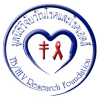Report of the Workshop on
“Towards 2015 ASEAN Community (AC): The readiness preparation for prevention and care for tuberculosis among prisoners in Chiang Rai, Thailand.”
—————————————————————————————–
Executive Summary
Prior to launching ASEAN Community (AC) in December 2015, a workshop was organized to review tuberculosis (TB) situation of two prisons in Chiang Rai, Thailand’s northernmost province bordering Myanmar, Laos PDR and close to China. Participants from health sector, corrections and justice affairs, civil society and NGO staff attended the meeting. The workshop included plenary presentations and group discussion. The workshop highlighted the following results:
1. Prison’s health must be connected with public health because prisoners will be released from prisons and will affect community health. International research show the effective pre and post release interventions contribute to HIV prevention and care and reduce recidivism (re-incarceration).
2. Of the 10 ASEAN countries, 6 countries are ranked in the top 22 countries with highest number of TB cases in the world. Myanmar and Laos, the two neighbors of Chiang Rai were ranked as the ASEAN’s top three countries with highest TB incidence in 2013.
3. Although Chiang Rai has already implemented collaborative health programs among the border hospitals of Chiang Rai, Myanmar and Laos PDR, there are no specific programs on prisons and health.
4. The analysis of 2007-2014 Chiang Rai provincial TB registry which included 285 prisoner patients and 13,739 general TB patients show the nationality of prisoners with TB included Thai, hilltribe minority, Myanmar and Laos. The annual TB notification rates of prisoners in Chiang Rai are 2.7 – 9 times higher than general population. Prisoner TB patients were younger, had higher proportions of pulmonary smear positive, multi-drug resistance TB, HIV testing coverage and higher HIV co-infection rate. For TB with HIV co-infection (TB/HIV) prisoners, the unknown status of access to co-trimoxazole and anti-retrovirus drugs (ARV) are almost half. Reasons of high missing data on these two HIV related drugs in prisoners need investigation. Death rates of prisoners with TB/HIV is slightly higher than general patients. A study of smear positive pulmonary TB patients comparing 145 prisoners and 2,048 general TB patients show that prisoners had higher proportions of smoking, drinking and drug use than general TB patients. Almost 11% of general TB patients were ex-prisoners.
5. Participants defined the ASEAN motto, “One Vision,One Identity, One Community” in TB care and control as “All prisoners, regardless of their nationality should obtain the same standard of TB prevention and care”. Prior to launching ASEAN Community, readiness preparation should include ensuring access to ARV for foreign TB/HIV prisoners, appointing focal institute/persons to follow up the referral result of Thai and foreign prisoners who are released from prisons before TB treatment completion. To support treatment continuation for the released Thai prisoners, staff of the Probation Office should be involved.
6. The meeting concluded that prisoners generally have poorer health conditions than general population and prisoners’ health affect public health. In line with the ASEAN motto, all prisoners should obtain the same standard of prevention and care for TB and HIV. Partners from various sectors should work together and connect prisoners’ health with community health.
Full Report Download
